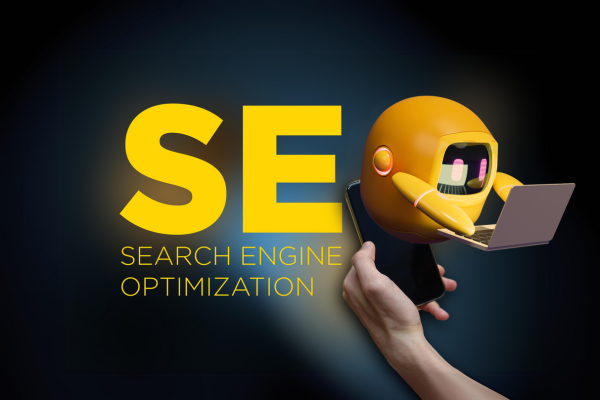SEO : The Ultimate Guide to B2B SEO for Attracting High-Value Clients
Reading Time: 5 mins
In the high-stakes arena of B2B, capturing the attention of key decision-makers and establishing your company as a trusted authority is paramount. Unlike B2C strategies aimed at broad consumer audiences, B2B SEO demands a laser focus on cultivating authority, nurturing trust, and engaging directly with the discerning professionals who drive industry innovation. This article delves into the specialised tactics that distinguish B2B SEO, empowering your business to cut through the digital noise, attract high-value clients, and solidify its position as an industry leader.
Three Reasons Why B2B Companies Need SEO
Attract High-Value Clients Actively Seeking Solutions
Unlike B2C consumers driven by impulse purchases, B2B buyers conduct extensive research to solve complex business challenges. Effective SEO ensures your company appears prominently when these decision-makers search for relevant keywords, driving highly qualified leads to your website.
Establish Authority and Build Trust in a Competitive Landscape
In the B2B world, trust is paramount. SEO enables you to publish high-quality content that showcases your expertise consistently, addresses industry pain points, and positions your company as a thought leader. This builds credibility, and fosters trust with potential clients, giving you a competitive edge.
Generate Sustainable, Long-Term ROI
While paid advertising campaigns offer immediate visibility, their impact is temporary. SEO, on the other hand, is a long-term investment that yields compounding returns. By optimising your website and content consistently, you’ll attract a steady stream of organic traffic, reducing reliance on costly paid channels and maximising your marketing ROI over time.

4 Key Differences Between B2B and B2C SEO
While both B2B and B2C businesses benefit from SEO, their approaches differ significantly due to the distinct nature of their target audiences and buying journeys. Here’s a closer look at the key distinctions:
Target Audience
B2C SEO focuses on reaching individual consumers often driven by personal needs, emotions, and relatively shorter buying cycles. B2B SEO, on the other hand, targets a more complex ecosystem of decision-makers within organisations, including executives, managers, and technical experts. This requires a nuanced understanding of their roles, pain points, and decision-making processes.
Keyword Strategy
B2C SEO often prioritises high-volume, general keywords that reflect broader consumer interests and search habits. Think “running shoes” or “best smartphones.”. Meanwhile, B2B SEO delves into more specific, long-tail keywords that align with niche industry terminology, business challenges, and solution-oriented searches. For example, “enterprise cloud storage solutions” or “supply chain management software for logistics.”
Content Marketing Goals
B2C content marketing often aims to drive immediate sales and conversions. Think product descriptions, promotional offers, and customer reviews. B2B content marketing, on the other hand, educates prospects, builds trust, and nurtures long-term relationships. This involves creating valuable resources like white papers, case studies, webinars, and in-depth blog posts that address industry challenges and demonstrate thought leadership.
Brand Building
While brand building is essential in both spheres, B2B SEO emphasises establishing the company as a trusted authority and industry leader. This involves consistently producing high-quality content that showcases expertise, provides valuable insights, and positions the brand as a go-to resource within its niche.

Three Common B2B SEO Obstacles and How to Overcome Them
B2B SEO presents unique challenges compared to its B2C counterpart. Here are some common hurdles and practical strategies to overcome them:
Challenge 1. Improvements are not immediately obvious
SEO success rarely unfolds overnight for B2B companies. The niche nature of B2B markets and lower search volumes for specific keywords mean that achieving significant traffic and conversion increases often takes time. This can lead to a disconnect between initial expectations and early results, causing some businesses to become discouraged.
Solution: It’s crucial to approach B2B SEO as a long-term strategy focused on cumulative gains. While individual pages might not experience immediate, dramatic traffic spikes, their collective impact contributes to substantial overall website growth. Consistently publishing high-quality content, optimising for relevant keywords, and building authoritative backlinks will yield compounding returns over time. To stay informed of your progress, utilise SEO software to monitor website performance, track keyword rankings, and gain valuable insights into your optimisation efforts.
Explore Further: How to improve SEO Visibility?
Challenge 2. Creating Engaging Content That Aligns with Business Offerings
Crafting content that resonates with target customers while accurately reflecting complex technical B2B products or services can be challenging. Striking a balance between in-depth industry knowledge and engaging storytelling requires careful consideration.
Solution: Adopt a customer-centric content strategy that prioritises solving customer pain points. Create high-quality articles, blog posts, and resources that directly address common questions and challenges your target audience faces. This establishes your expertise, builds trust, and drives engagement.
Explore Further: What is Evergreen Content?
Challenge 3. Lack of Time and Manpower for SEO Content Creation:
Producing consistent, high-quality, SEO-optimised content requires time, resources, and specialised skills. B2B companies often lack the manpower needed to meet these demands.
Solution: Leverage AI-powered writing tools to streamline content creation. These tools can help generate high-quality, SEO-friendly content, freeing valuable time and resources. Additionally, consider outsourcing content creation to specialised SEO writing services or investing in SEO training for your internal team.
Explore Further: Latest AI Trends by LinkedIn
Professional SEO Content Writing Services by FIMMICK
Find SEO content creation too time-consuming? Boosting your website’s SEO doesn’t have to be a struggle.
At FIMMICK, our SEO content writing service, powered by cutting-edge AIGC technology, will give you the edge to stand out from the crowd. Tapping into real-time search trends for relevant keywords, we help you generate high-quality, SEO-optimised content at scale with AI, resulting in higher conversion and sales. Contact us today to explore how our comprehensive SEO solutions can enhance your online presence!
Ready to take your business to the next level? Contact us now!

Crafting a Winning B2B SEO Strategy
Developing an effective B2B SEO strategy requires a targeted approach that aligns with the unique dynamics of the B2B landscape. Here’s a step-by-step guide to get you started:
1. Know Your Audience
Before diving into keywords and content, it’s crucial to have a deep understanding of your target audience. Who are your ideal customers? What are their pain points, challenges, and aspirations? What information are they searching for online? Answering these questions will provide a solid foundation for creating content that resonates and converts.
2. Embrace Long-Tail Keywords
As mentioned earlier, B2B SEO thrives on long-tail keywords. These longer, more specific phrases reflect the targeted search queries of B2B buyers. Utilise keyword research tools to identify relevant long-tail keywords within your industry and seamlessly incorporate them into your website content, blog posts, and other online assets.
3. Create High-Quality Content That Matters
Content reigns supreme in the world of SEO. Focus on creating high-quality, valuable content that attracts your target audience and provides them with meaningful information and solutions. Address their pain points, answer their questions, and demonstrate your expertise through compelling blog posts, in-depth articles, white papers, case studies, and more.
4. Build a Strong Internal and External Link Profile
Links act as signposts for search engines, guiding them through your website and indicating the value and relevance of your content. A robust internal linking structure improves user experience and helps search engines understand the hierarchy and context of your content. Equally important are external links from reputable websites, which enhance your website’s authority and boost your search engine rankings.
Explore Further: What is Off-Site SEO?
5. Prioritise Ongoing Optimisation and Updates
SEO is not a one-time endeavour; it’s an ongoing process of refinement and improvement. Regularly review and update your website content to ensure accuracy, freshness, and alignment with current SEO best practices. Stay informed about algorithm updates and industry trends to maintain a competitive edge in the ever-evolving digital landscape.

Related Solutions
Related Articles

Content Marketing: Social Media in Travel – Key Trends for 2025
Is your travel marketing ready for 2025? Explore the evolving landscape of social media and its impact on the travel industry.

AI: AI Generated Content on Meta: Will it Reshape Social Media Feeds
Meta’s using AIGC to reshape Facebook and Instagram. Learn how brands can adapt and thrive in this new AI-driven landscape.

Content Marketing: Social Media Engagement Loops – The Key to Drive Customers
Discover how to integrate engagement loops into your social media marketing plan and turn passive followers into active, paying customers.









